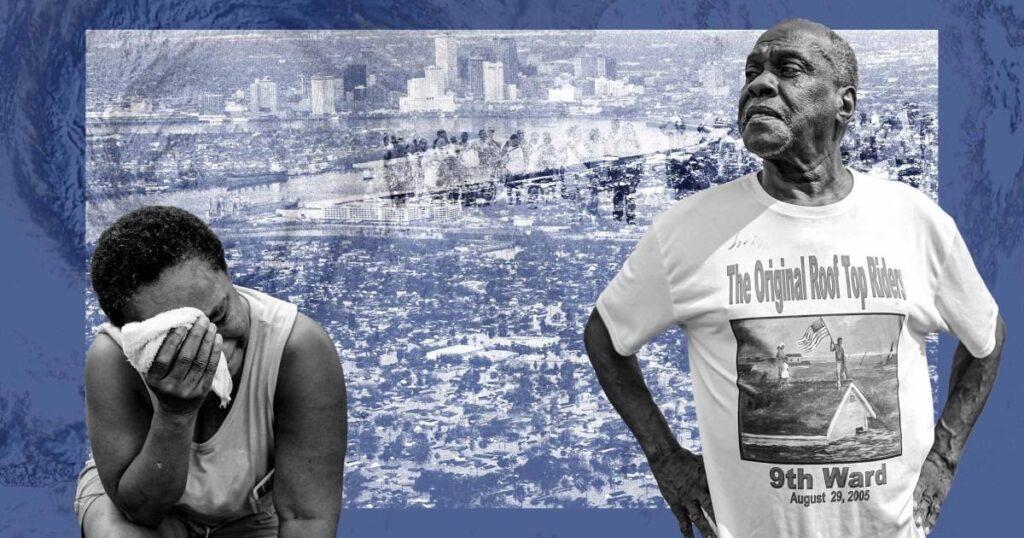
UPDATE: As New Orleans marks the 20th anniversary of Hurricane Katrina today, survivors are sharing harrowing stories and confronting the ongoing misrepresentation of their experiences. Residents stress that the narrative around the disaster has been distorted, overshadowing their resilience and survival.
In the early hours of August 29, 2005, the levees surrounding New Orleans began to fail, unleashing catastrophic flooding that would forever alter the city. As Hurricane Katrina made landfall as a weakening Category 3 storm, the city’s infrastructure crumbled, resulting in over 1,800 deaths and $92 billion in damages.
“I thought everyone was dead,” recalled Lucrece Phillips, a survivor from the 8th Ward, who escaped her home through an attic window. Many others were not so fortunate, struggling to survive as floodwaters engulfed their neighborhoods.
Survivors like Lynette Boutte criticize the media coverage of the disaster, which portrayed residents as looters rather than desperate individuals seeking survival. “That was not the story,” Boutte asserted. “People were looking for food and supplies, not engaging in criminal behavior.”
The aftermath of Katrina was dominated by sensational headlines, with images of chaos and desperation prominently featured. However, survivors emphasize that the true narrative is one of strength and solidarity.
“Of course, there were opportunists, but they were a small part of the story,”
said Tracy Curry, director of the documentary “Hurricane Katrina: Race Against Time.”
In the wake of the storm, many neighborhoods, especially in historically Black areas like Tremé, have changed drastically. “There are no more children here,” Boutte lamented, noting the loss of vibrant community life. Once bustling streets are now eerily quiet, as families have been priced out due to gentrification and rising housing costs.
While the physical scars of Katrina may be healing, the emotional wounds remain fresh. Phillips describes the nightmares that still haunt her, illustrating the lasting trauma felt by many survivors. “I came back a month later to see things and gather some belongings; it was horrible. Everything was brown,” she said.
Despite the challenges, survivors are determined to preserve their culture and community. “We have our music. We have our food,” Boutte said, expressing hope that future generations will continue to learn about their heritage.
As the nation reflects on the lessons learned from Katrina, both Phillips and Boutte urge vigilance regarding infrastructure. “Crumbling infrastructure nationwide is a ticking time bomb,” Phillips warned, drawing parallels to recent disasters like Hurricane Helene, which similarly devastated communities.
What’s Next: As New Orleans commemorates this tragic anniversary, the city is at a crossroads. Survivors are calling for awareness and action to ensure that lessons from Katrina are not forgotten. The resilience of New Orleans’ residents continues to inspire, but as they navigate rebuilding their lives, they remain vigilant in advocating for change.
The legacy of Hurricane Katrina is not just one of loss but also of survival, unity, and an unyielding spirit. As the anniversary draws attention, it is crucial to listen to the voices of those who lived through it, ensuring their stories are told with the respect and dignity they deserve.






